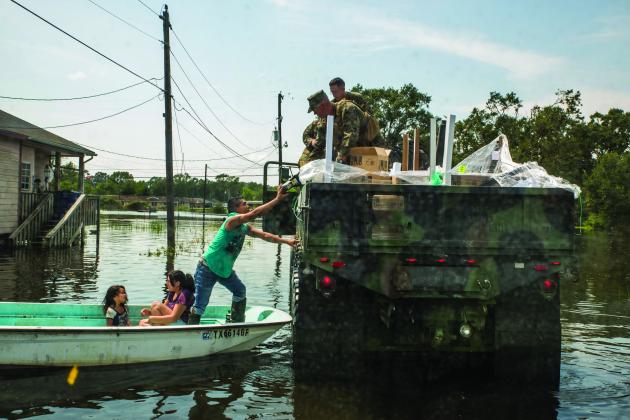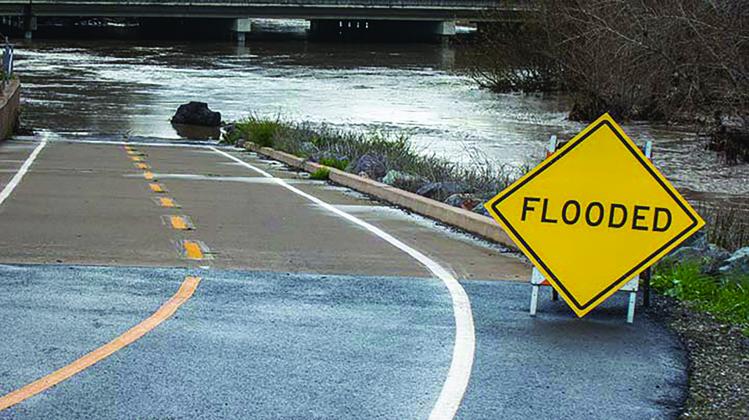All Atlantic and Gulf of Mexico coastal areas are subject to hurricanes or tropical storms, the Texas Department of State Health Services reminded on opening day of hurricane season, June 1. The Atlantic hurricane season lasts from June 1 to Nov. 30, with the peak season from mid-August to late October.
Hurricane categories are based on their wind speed, central pressure and damage potential. Although Category Three through Five hurricanes are considered major storms, all hurricanes are extremely dangerous and warrant your full attention, the agency further acknowledges. Hurricanes and tropical storms can also spawn tornadoes and microbursts, create storm surges along the coast, and cause extensive damage from wind, heavy rainfall and flooding.
The State Health Services department suggests planning before a disaster strikes.
Before a hurricane: Secure your property. Ensure trees and shrubs around your home are well trimmed. Clear loose and clogged rain gutters and downspouts. Create your Disaster Supply Kit and keep it in an easily accessible place. Ensure a supply of water for sanitary purposes such as cleaning and flushing toilets.
According to the state agency, permanent storm shutters offer the best protection for windows, but a viable second option is to board up windows with five-eighths of an inch marine plywood, cut to fit and ready to install.
Consider installing straps or additional clips to securely fasten your roof to the frame structure. Secure outdoor furniture, potted plants, lawn ornaments, and barbecue grills – and don’t forget to moor boats if applicable.
Turn off propane tanks, and fill the bathtub and other large containers with water, especially if you plan to ride out the storm and not evacuate.
For those that stay during a hurricane, the state agency advises getting out the family’s pre-prepared Disaster Supply Kit, and monitoring radio, TV and social media for important information.
“Turn off utilities if instructed to do so,” the agency further details. “Otherwise, turn the refrigerator thermostat to its coldest setting and keep its doors closed.”
It is advised that those riding out a hurricane avoid using the phone, except for serious emergencies and checking in with family and friends with location and safety status.
Although there are best practices to follow when staying behind during a hurricane, Texas emergency management officials urge people to evacuate if local authorities advise it.
Mobile homes and other temporary structures are particularly hazardous during hurricanes, no matter how well fastened to the ground. Also, hurricane winds are stronger at higher elevations such as in high-rise buildings and apartments.
For those unable to evacuate: “Stay indoors during the hurricane and away from windows and glass doors. Close all interior doors – secure and brace external doors. Keep curtains and blinds closed. Calm winds do not indicate the end of the storm. As the eye of the storm passes over, winds will become still and then reverse as the backside of the hurricane moves over the area. Remain calm.”
After a hurricane, Texas Department of State Health Services officials detail, dangers such as high water, downed electrical power lines and broken gas mains are major safety threats.
“Do not return home until given permission by local emergency management,” according to the agency. “Use extreme caution when entering damaged homes or structures. Beware of unstable trees and limbs. Falling tree limbs are a major cause of injury and death following hurricanes.
“Downed power lines are a serious electrocution hazard. Never touch downed power lines or any objects that are in contact with them, including water. Do not enter flooded homes if the electricity may still be on. Report electrical hazards to authorities.
“Wear sturdy shoes or boots, long pants, long sleeves and gloves when cleaning up.
“Help avoid injuries when using chain saws and power tools by learning how to operate them properly, and always follow recommended safety procedures. Whenever possible, use battery-powered flashlights and lanterns instead of candles.
“Discard food from your refrigerator if it has reached room temperature. If in doubt, throw it out. Drink bottled water or water that has been purified until authorities say tap water is uncontaminated and safe. You can also disinfect water with chlorine or iodine, or with ordinary household bleach – one-eighth teaspoon per gallon of water.
“Never use generators, camp stoves, or charcoal grills inside your home, garage, or near open windows, doors or vents. Carbon monoxide is a colorless and odorless gas that can build up and cause sudden illness and death. If you feel dizzy, light-headed, or nauseous, seek immediate medical attention.”
As Southeast Texans who have been through a hurricane before will attest, weather conditions following hurricanes are usually very hot and humid and it’s quite common not to have air conditioning for a long period of time.
“Avoid heat-related illnesses by drinking plenty of fluids and taking care not to overexert yourself when cleaning up and repairing damage,” state health officials urge. Also, look out for broken glass and exposed nails when clearing debris, and seek medical attention for any puncture-type injuries.
Learn more at https://texasready.gov/be-informed/natural-disasters/hurricanes.html.



